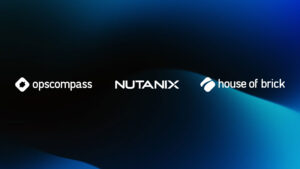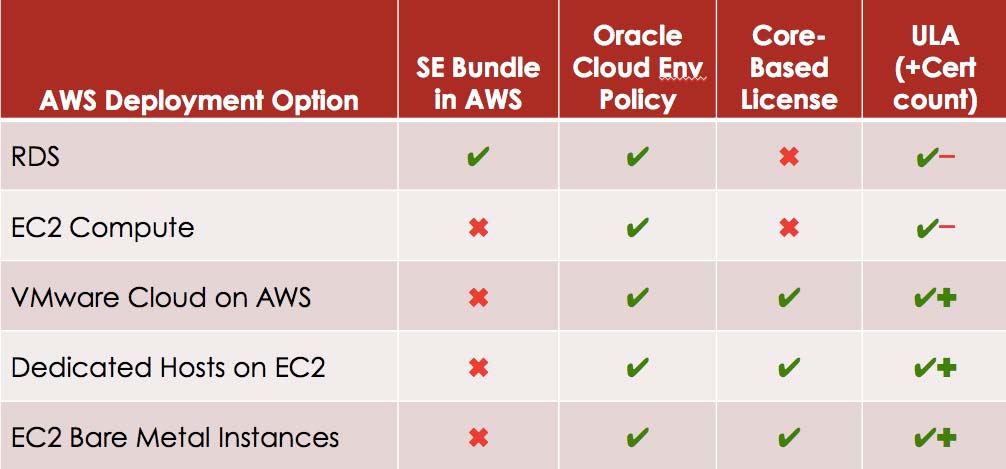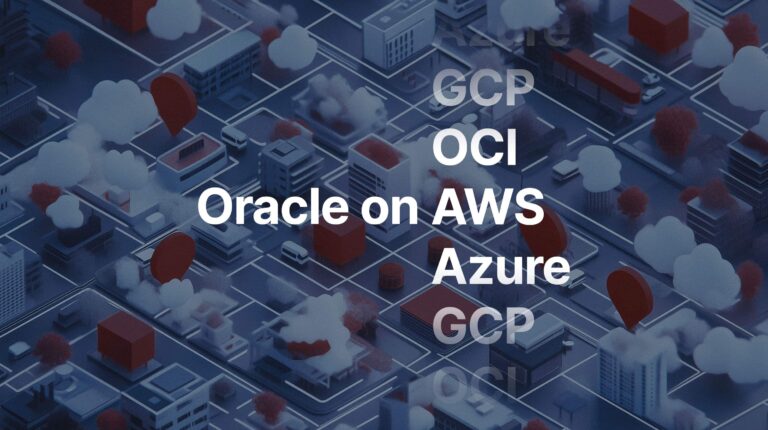Nathan Biggs (@nathanbiggs), CEO

In November of 2016, I wrote a blog post that followed the announcement by VMware and Amazon about the VMware Cloud on AWS (VMC on AWS). The subtitle of that blog was “VMware and AWS Announcement May Crack Open the Window of Opportunity”. As I will show in this blog post, we are now pushing the window wide open by recommending that our customers consider the Oracle cloud policy as applicable to all AWS deployment options, including VMC on AWS.
While expressing House of Brick’s excitement over the announcement at the time of the earlier blog, we were not clear how Oracle licensing might be applied in the new environment. We hoped that the policy document “Licensing Oracle Software in the Cloud Computing Environment” would apply, but there were many questions that needed to be answered. I stated in that blog post:
“Please understand that House of Brick is not presently endorsing the position that Oracle’s document covers VMware Cloud on AWS. Before making any such endorsement we need to understand the VMware, AWS, and Oracle sides of things more clearly.”
For the past year and a half, House of Brick has indeed been working diligently to understand the VMware, AWS, and Oracle sides of things more clearly. Here are some of the critical activities we have engaged in:
- House of Brick has become an AWS partner. We have gotten critical AWS business and architectural certifications, we meet regularly with product and engineering experts at AWS, and are establishing a leadership position in the cloud similar to our leadership position in the virtualization of Oracle software.
- AWS and House of Brick are working on joint efforts to develop resources for Oracle customers to use in planning cloud implementations. I will be joining AWS Business Development Manager, Kwesi Edwards, to present Optimize your Oracle Licenses on Amazon Web Services at IOUG Collaborate 2018. Other developments will be released in the coming weeks.
- In conjunction with VMware and AWS, we have been working hands-on with actual VMC on AWS instances to validate our processes and to develop best practices for our Oracle customers.
- House of Brick is engaged in supporting many active customers in their interactions with Oracle. We are able to prove our concepts in the field as we support our customers’ licensing negotiations with Oracle as well as defend them in Oracle audits.
- We have grown our customer base of cloud implementation projects considerably.
House of Brick is now prepared to make more definitive statements for our customers to consider regarding licensing options for running Oracle in the AWS cloud. Here are the things that we have taken into account in developing our position:
- The Oracle Cloud Policy – Oracle has published a policy called “Licensing Oracle Software in the Cloud Computing Environment”. This document is subject to change at any time (as was the case most recently on January 23, 2018), but it provides customers with the ability to license their workloads by virtual CPU rather than by the underlying processor cores in the physical server (as allowed in the Oracle license agreements). From this policy document, here is the relevant definition of an Oracle Authorized Cloud Environment:
“This policy applies to cloud computing environments from the following vendors: Amazon Web Services – Amazon Elastic Compute Cloud (EC2), Amazon Relational Database Service (RDS) and Microsoft Azure Platform (collectively, the ‘Authorized Cloud Environments’).”
- AWS Definition of VMware Cloud Environment – In my earlier blog post, I referenced an obscure statement made by an AWS employee in a video indicating that VMC on AWS was using the EC2 environment, but now we have a more definitive statement. Please note Amazon’s definition below for the VMware Cloud on AWS:
“VMware Cloud on AWS is an integrated cloud offering jointly developed by AWS and VMware delivering a highly scalable, secure and innovative service that allows organizations to seamlessly migrate and extend their on-premises VMware vSphere-based environments to the AWS Cloud running on next-generation Amazon Elastic Compute Cloud (Amazon EC2) bare metal infrastructure. VMware Cloud on AWS is ideal for enterprise IT infrastructure and operations organizations looking to migrate their on-premises vSphere-based workloads to the public cloud, consolidate and extend their data center capacities, and optimize, simplify and modernize their disaster recovery solutions.” (emphasis added)
We now see that AWS is making it clear that the VMware Cloud on AWS is running on Amazon EC2. We also see that bare metal infrastructure from Amazon is also EC2.
Because of the unequivocal statement that VMC on AWS is “Amazon EC2” and Oracle’s requirement for cloud authorization is EC2, House of Brick is now prepared to endorse that our customers consider the cloud policy as a valid option for licensing Oracle in all AWS deployment configurations (including VMC on AWS).
While House of Brick may have more experience than any other organization in dealing with Oracle licensing issues in virtualized or cloud environments, we are not attorneys. As always, our recommendations on licensing should be validated by our customers with their legal advisors. Also, as we have seen, Oracle can change their policy at any time, which should be considered by our customers’ legal teams when developing a cloud strategy.
Here is a matrix of which license types House of Brick endorses for each AWS deployment option:
Note: If the customer uses ULA licensing to cover cloud deployments, then the only way they can count that usage in a ULA certification is if they are deployed on dedicated hosts (VMC on AWS, Dedicated Hosts on EC2, or EC2 Bare Metal Instances).
We are excited that House of Brick can now endorse each of these licensing options for our customers considering a cloud deployment to AWS. It truly opens the window to the cloud for our customers, especially those who have invested in the virtualization of their Oracle systems. We will continue to develop our cloud industry leadership position by promoting customer case references, providing expert professional consulting services, and sharing our successes. Let us know if we can help you.







